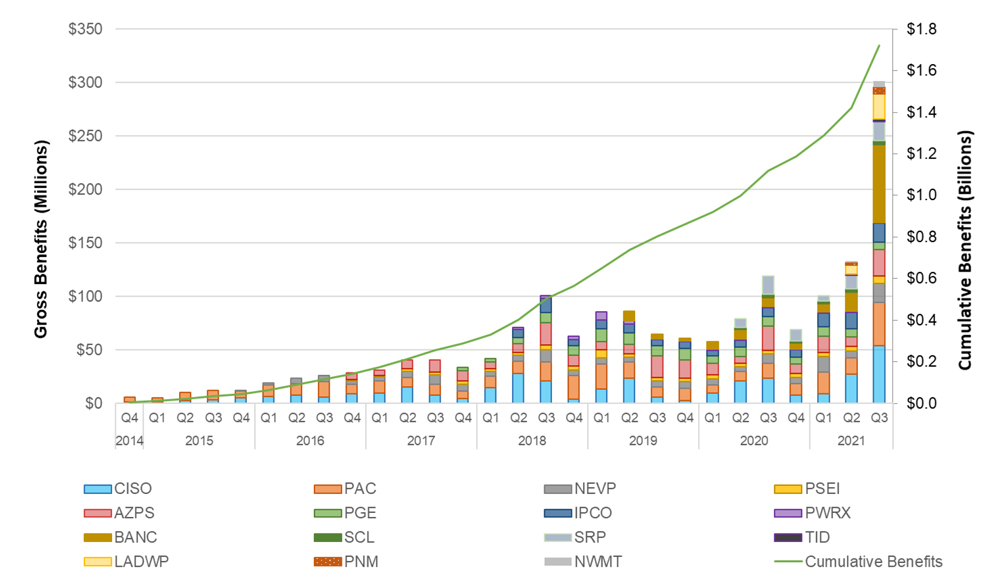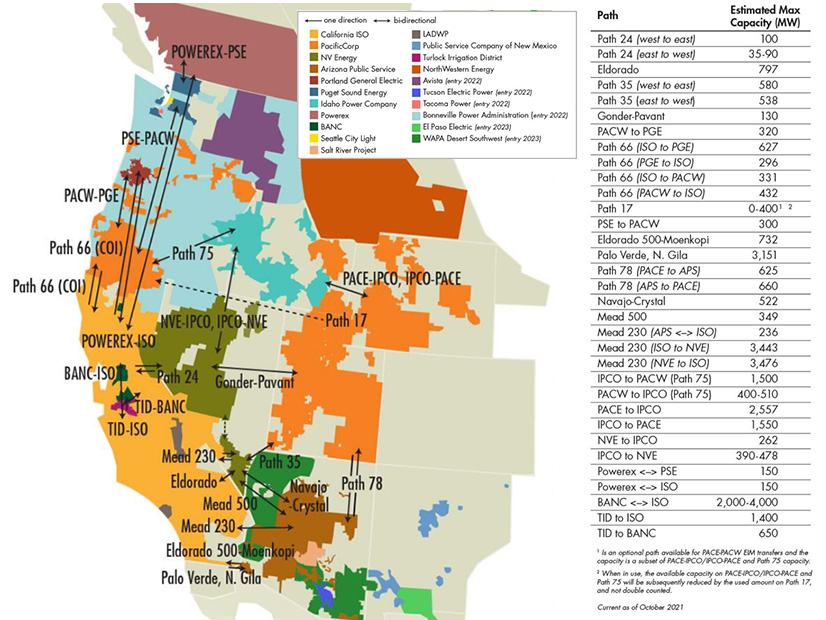CAISO’s Western Energy Imbalance Market racked up more economic benefits for its members in the third quarter of 2021 than it did in yearly benefits in 2019 and almost as much as in 2020, bringing the WEIM’s cumulative savings to more than $1.7 billion since it started seven years ago, the ISO said Friday.
“The third-quarter results, which represent gross cost savings calculated from the optimization of market and grid efficiencies, exceeds the $297 million in cumulative benefits for all of 2019, and nearly reaches the $325 million in total benefits attained in 2020,” CAISO said in a news release.
The unprecedented savings of $301 million for EIM participants resulted from summer heat waves in California, the Desert Southwest and the Pacific Northwest that triggered high demand amid tight supply, pushing electricity prices higher, and from four new entities joining the WEIM earlier this year, CAISO said.
Transfers between WEIM balancing areas provided access to lower-cost supply, saving some participants tens of millions of dollars.
CAISO and the Balancing Authority of Northern California, which includes the Sacramento Municipal Utility District and five other public utilities, saw the biggest savings from inter-BA transfers. BANC accumulated $72.5 million in benefits, while CAISO saved $54 million.
Other winners included PacifiCorp with $40 million in benefits, Arizona Public Service with $24.5 million and the Los Angeles Department of Water and Power (LADWP) with more than $23.5 million.
 Benefits in Q3 dwarfed prior quarters in the Western EIM. | CAISO
Benefits in Q3 dwarfed prior quarters in the Western EIM. | CAISOLADWP, Public Service Company of New Mexico (PNM), NorthWestern Energy and the Turlock Irrigation District (TID) joined the WEIM earlier this year. PNM saved $6.8 million; NorthWestern saved more than $5 million; and TID saved just over $2 million. Together, the four new entities boosted WEIM benefits by more than $37 million in the third quarter.
CAISO CEO Elliot Mainzer used the record-breaking results as part of his continuing effort to pitch the West on the potential benefits of expanding the WEIM from real-time to a day-ahead trading market. (See CAISO Promotes EDAM Effort in Forum.)
“As we embark on the development of our Enhanced Day-Ahead Market (EDAM), these EIM results are another tangible example of the value of West-wide market coordination,” Mainzer said in a statement. “We look forward to working with our partners across the West to build on this foundation and create even greater economic and environmental value for the people we serve.”
In addition to monetary benefits, the WEIM said its 15 participants avoided curtailing solar, wind and other renewable energy resources by 23,000 MWh and reduced carbon emissions by more than 9,800 metric tons.
“Reducing curtailments leads to lower greenhouse gas emissions because the renewable energy, rather than going unused, can be deployed by other market participants and may displace power generated using fossil fuels,” the ISO said.



